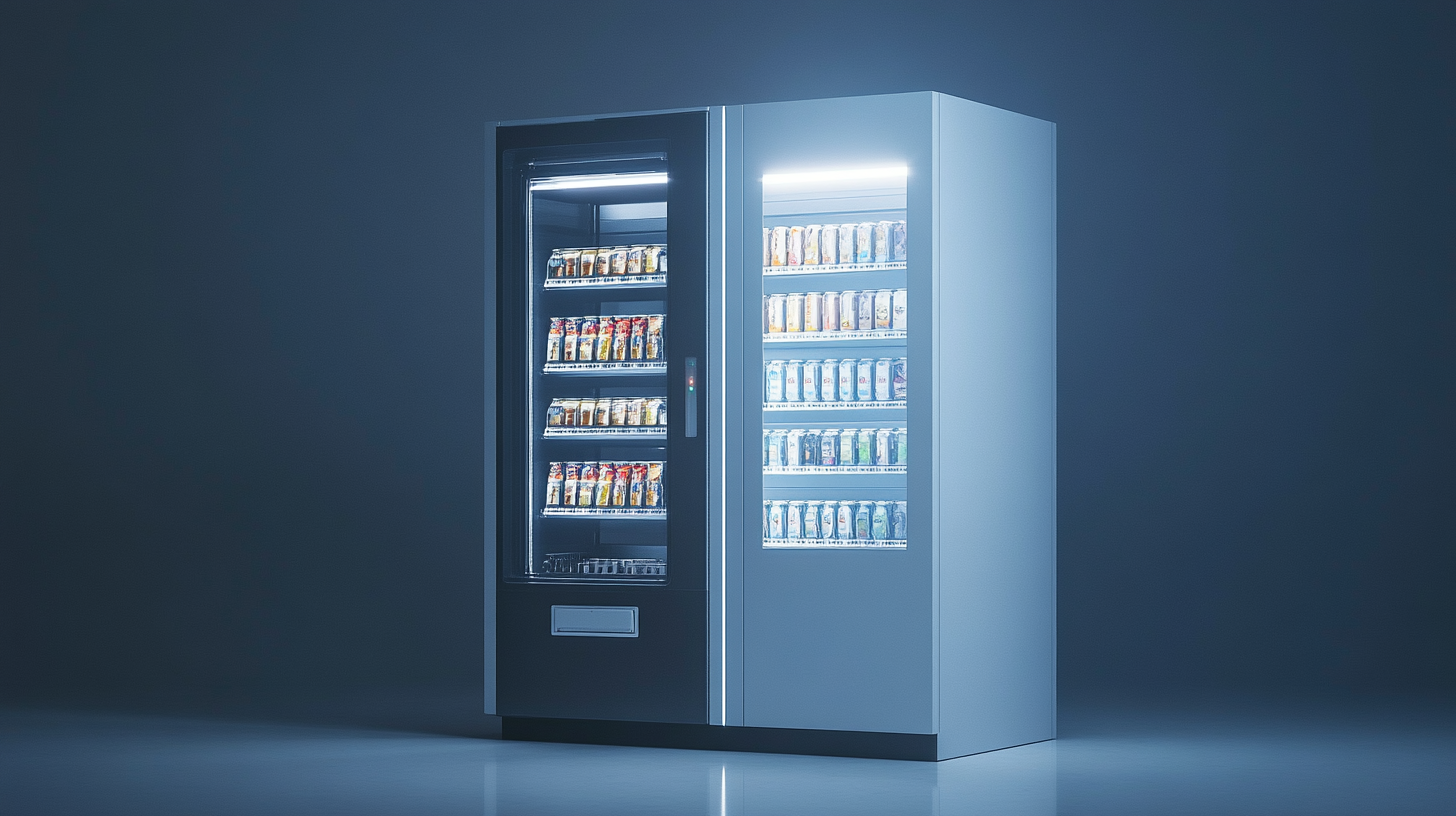Unlocking Quality Supplier Partnerships for Free Vending Machines Essential Guide
In the rapidly evolving landscape of retail and consumer services, the quest for quality supplier partnerships is more critical than ever. According to recent industry reports, the global vending machine market is projected to reach $25 billion by 2026, with a significant surge in demand for innovative solutions like Free Vending Machines. These machines offer an appealing alternative for businesses looking to enhance employee satisfaction, improve guest experiences, and drive traffic without the heavy upfront costs associated with traditional vending options. Quality partnerships with reliable suppliers are essential to tap into this burgeoning market effectively.
Moreover, a study from IBISWorld indicates that companies prioritizing strategic supplier relationships not only enjoy increased profit margins but also greater flexibility in adapting to market demands. As businesses explore the benefits of Free Vending Machines, establishing strong partnerships with suppliers becomes imperative to ensure product quality, timely service, and customizability. This essential guide will navigate you through the landscape of supplier partnerships, providing insights on how to identify, evaluate, and foster relationships that can propel your vending machine initiative to success.

Understanding the Landscape of Vending Machine Supply: Key Industry Insights and Trends
The global vending machine market is on the brink of significant expansion, projected to grow by USD 12.42 billion from 2022 to 2027. North America is expected to play a pivotal role in this growth, accounting for approximately 37% of the total market increase. As the industry evolves, understanding the key trends and insights into vending machine supply becomes essential for businesses looking to unlock quality supplier partnerships. One notable trend is the rise of intelligent vending machines, which are set to transform the market landscape. The intelligent vending machine market is estimated to grow exponentially, soaring from $11.47 billion in 2025 to an impressive $36.89 billion by 2032, with a compound annual growth rate (CAGR) of 18.2%. This surge is driven by increasing consumer demand for enhanced interactive shopping experiences, signaling a shift towards more sophisticated and engaging vending solutions. Additionally, as industries seek more efficient supply chains, the vending machine sector is also seeing a robust annual growth rate of 7.5% over the next few years. Suppliers are adapting to these changes by innovating their offerings and focusing on sustainability, which also aligns with global demands showcased in various market research studies. Understanding these trends is essential for forging strategic partnerships with suppliers who are poised to deliver quality products and solutions in this dynamic market landscape.

Evaluating Potential Suppliers: Criteria for Quality and Reliability in Vending Partnerships
When selecting suppliers for free vending machines, it’s crucial to evaluate their quality and reliability. Key criteria include their experience in the industry, product diversification, and customer service capabilities. A supplier with a proven track record demonstrates their ability to meet the demands of different markets, ensuring that your vending machines are stocked with popular and relevant products that resonate with consumers.
Sustainability is another significant factor to consider. A forward-thinking supplier will prioritize environmentally-friendly practices, from sourcing raw materials to their delivery operations. This commitment not only enhances their brand reputation but also aligns with the growing consumer preference for sustainable products. Conducting due diligence on their sustainability initiatives can provide insights into their operational ethics and long-term viability.
Additionally, assessing a supplier’s financial stability is vital. A financially sound partner is less likely to face disruptions that could impact your vending service. Evaluating their compliance with environmental and social standards also serves as a benchmark for their reliability. Ultimately, establishing strong partnerships with quality suppliers can lead to a successful vending operation that thrives on customer satisfaction and innovative offerings.

The Importance of Data Analytics in Optimizing Vending Machine Product Offerings
In today's competitive vending machine landscape, leveraging data analytics is essential for optimizing product offerings and ensuring successful supplier partnerships. According to the North America Industrial Vending Machine Market Report for 2030, the market is poised to exhibit substantial growth, driven by a rise in demand across multiple sectors including healthcare, education, and entertainment venues. Enhanced data analytics capabilities allow operators to effectively track consumer preferences and purchasing patterns, which is crucial for tailoring product selections that resonate with diverse demographics.
Coca-Cola's 2025 marketing strategy demonstrates the importance of aligning brand messaging with consumer insights across various cultures and age groups. By employing data analytics, vending machine operators can respond to market trends in real-time, adjusting their offerings to include popular items and seasonal preferences that can drive sales. The North America Micro Market Size and Share Report indicates that businesses investing in data-driven solutions are more likely to see significant improvements in consumer engagement and revenue growth.
As the North American vending machine market continues to evolve, the integration of advanced data analytics will become increasingly vital. Operators who successfully harness this technology can unlock significant partnerships with suppliers, ensuring that their product offerings are not only appealing but also tailored to meet the specific demands of their target audience. Such strategic partnerships can lead to a more efficient supply chain, reducing costs and improving overall profitability in the ever-changing vending landscape.

Negotiating Contracts: Best Practices for Establishing Win-Win Supplier Agreements
Negotiating contracts is a crucial aspect in establishing effective supplier partnerships for free vending machines. As outlined in a report by IBISWorld, the vending machine industry has seen a steady growth of approximately 2.6% annually over the past five years, largely due to the demand for convenience and diversified product offerings. To capitalize on this growth, quality supplier agreements that provide mutual benefits are essential.
Best practices for negotiating these contracts begin with thorough market research. Understanding industry benchmarks for pricing, delivery schedules, and product freshness can empower businesses during negotiations. According to a survey by the National Automatic Merchandising Association (NAMA), 70% of vending operators believe that building strong relationships with suppliers significantly enhances service quality and product availability. Leveraging these insights can encourage resilient partnerships built on trust and transparency.
Another key component is clarity in contract terms. Successful negotiations prioritize detailed clauses around pricing adjustments, contract length, and expectations for service levels. A study published by Procurement Leaders indicated that clear agreements reduce the likelihood of disputes by up to 40%. By establishing a win-win framework from the outset, both operators and suppliers can benefit from reduced friction, fostering collaboration that ultimately enhances customer satisfaction and drives sales.
Case Studies: Successful Free Vending Machine Partnerships and Their Impact on Sales
In the competitive landscape of vending machine operations, establishing fruitful partnerships with quality suppliers can significantly enhance sales performance. Case studies from various businesses reveal the transformative impact that these collaborations can have on profitability and customer satisfaction. For instance, a local gym partnered with a niche healthy snack supplier, leading to a 30% increase in snack sales within three months. By offering products that aligned with their clientele's health-conscious values, the gym not only boosted revenue but also strengthened its brand image as a wellness-oriented facility.
Another compelling case involves a university that embraced a partnership with a popular beverage company. By installing free vending machines filled with innovative drink options, the university reported a substantial uptick in foot traffic to its student center. This partnership provided the students with refreshing choices while creating an atmosphere of community engagement. The beverage company's strategic use of exclusive promotions and branding on the machines further drove sales and enhanced the overall student experience.
Additionally, a corporate office implemented free vending machines filled with gourmet coffee alternatives through a collaboration with a local coffee roaster. The initiative not only catered to the employees' preferences for premium quality but also fostered a sense of local support. As a result, not only did coffee sales soar, but the office reported increased employee satisfaction and productivity. These examples underscore the importance of aligning product offerings with the target audience's interests, demonstrating how effective supplier partnerships can lead to remarkable outcomes in the vending machine industry.
